| Origem | Literatura Estrangeira |
|---|---|
| Quantidade de Páginas | 96 |
| Acabamento | Capa Comum |
| Autores | Max Randerath |
| Idioma | Inglês |
| Edição | 0 |
| Selo | GRIN Verlag |
 Vade Mecum MPPR (capa comum)
Vade Mecum MPPR (capa comum)
Editora GuedesJus
R$ 150,00 ou até 3x sem juros Derecho Internacional
Derecho Internacional
Legare Street Press
R$ 256,79 ou até 3x sem juros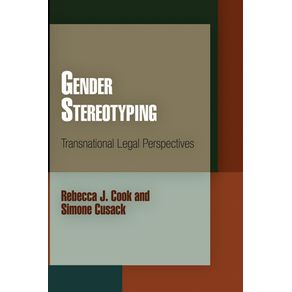 Gender Stereotyping
Gender Stereotyping
University of Pennsylvania Press
R$ 268,55 ou até 3x sem juros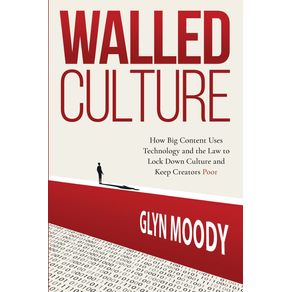 Walled Culture
Walled Culture
BTF Press
R$ 93,38 à vista The Legal Design Book
The Legal Design Book
Ground M
R$ 365,81 ou até 3x sem juros Corporate Counsel
Corporate Counsel
Conduit Law Prof Corp DBA Old Town Press
R$ 144,97 ou até 2x sem juros SERIAL KILLER NÃO É O VIOLENTADOR, É A VÍTIMA
SERIAL KILLER NÃO É O VIOLENTADOR, É A VÍTIMA
KS OmniScriptum Publishing
R$ 262,03 ou até 3x sem juros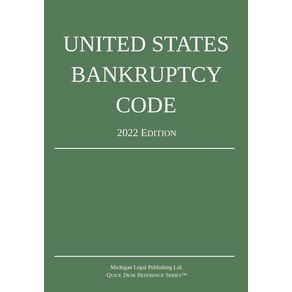 United States Bankruptcy Code; 2022 Edition
United States Bankruptcy Code; 2022 Edition
Michigan Legal Publishing Ltd.
R$ 147,77 ou até 2x sem juros The Critical Legal Pocketbook
The Critical Legal Pocketbook
Counterpress
R$ 219,16 ou até 3x sem juros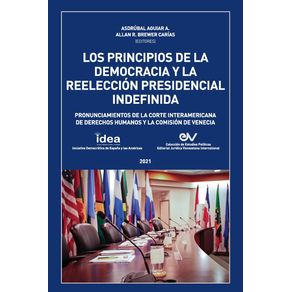 LOS PRINCIPIOS DE LA DEMOCRACIA Y LA REELECCION PRESIDENCIAL INDEFINIDA. Pronunciamientos de la Corte Interamericana de
LOS PRINCIPIOS DE LA DEMOCRACIA Y LA REELECCION PRESIDENCIAL INDEFINIDA. Pronunciamientos de la Corte Interamericana de
EDITORIAL JURIDICA VENEZOLANA INTER
R$ 398,68 ou até 3x sem juros Barriers to Conflict Resolution
Barriers to Conflict Resolution
W. W. Norton
R$ 154,65 ou até 3x sem juros A IDEOLOGIA DO DISCURSO PROPRIETÁRIO E DO DISCURSO FUNCIONALISTA
A IDEOLOGIA DO DISCURSO PROPRIETÁRIO E DO DISCURSO FUNCIONALISTA
Lulu Press
R$ 99,38 à vista DELINEAMENTOS METODOLÓGICOS PARA A ANÁLISE HISTÓRICA DOS CONCEITOS DE PROPRIEDADE E DE FUNÇÃO SOCIAL
DELINEAMENTOS METODOLÓGICOS PARA A ANÁLISE HISTÓRICA DOS CONCEITOS DE PROPRIEDADE E DE FUNÇÃO SOCIAL
Lulu Press
R$ 90,54 à vista A VALIDADE DA CLÁUSULA SUCESSÓRIA NO PACTO ANTENUPCIAL
A VALIDADE DA CLÁUSULA SUCESSÓRIA NO PACTO ANTENUPCIAL
Lulu Press
R$ 99,48 à vista The Art of Adjusting
The Art of Adjusting
Tilting At Windmills Press
R$ 219,25 ou até 3x sem juros Vade Mecum CNJ-CNMP-TSE-CONAMA-CONANDA
Vade Mecum CNJ-CNMP-TSE-CONAMA-CONANDA
Editora GuedesJus
R$ 190,90 ou até 3x sem juros The Law of Limitation and Prescription
The Law of Limitation and Prescription
Legare Street Press
R$ 336,14 ou até 3x sem juros A Digest of the Law of Evidence
A Digest of the Law of Evidence
Legare Street Press
R$ 331,21 ou até 3x sem juros Human Dignity and the Autonomy of Law
Human Dignity and the Autonomy of Law
Springer Nature B.V.
R$ 335,16 ou até 3x sem juros Oeuvres Complètes De Pothier
Oeuvres Complètes De Pothier
Legare Street Press
R$ 275,14 ou até 3x sem juros Gender Stereotyping
Gender Stereotyping
University of Pennsylvania Press
R$ 268,55 ou até 3x sem juros LA JURISDICCIÓN CONSTITUCIONAL EN EL DERECHO VENEZOLANO
LA JURISDICCIÓN CONSTITUCIONAL EN EL DERECHO VENEZOLANO
EDITORIAL JURIDICA VENEZOLANA INTER
R$ 140,02 ou até 2x sem juros The Illustrated Courtroom
The Illustrated Courtroom
Illustrated Courtroom
R$ 135,78 ou até 2x sem juros The Lawyer As CEO
The Lawyer As CEO
TORKLAW, APC
R$ 120,05 ou até 2x sem juros CODICE ANTIMAFIA 2022
CODICE ANTIMAFIA 2022
Lulu Press
R$ 110,43 ou até 2x sem juros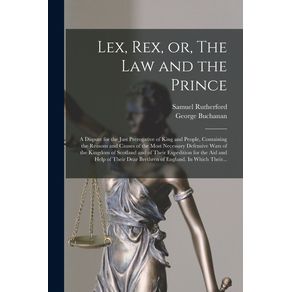 Lex, Rex, or, The Law and the Prince
Lex, Rex, or, The Law and the Prince
Legare Street Press
R$ 166,09 ou até 3x sem juros The Climate Change Hoax Argument
The Climate Change Hoax Argument
The Ewings Publishing LLC
R$ 102,56 ou até 2x sem juros Decision According to Law
Decision According to Law
W. W. Norton
R$ 104,04 ou até 2x sem juros PACTO ANTENUPCIAL SEGUNDO A TEORIA DO NEGÓCIO JURÍDICO
PACTO ANTENUPCIAL SEGUNDO A TEORIA DO NEGÓCIO JURÍDICO
Lulu Press
R$ 92,51 à vista Donor-Advised Funds
Donor-Advised Funds
Dorrance Publishing
R$ 126,10 ou até 2x sem juros Vade Mecum TJPR (capa comum)
Vade Mecum TJPR (capa comum)
Editora GuedesJus
R$ 150,00 ou até 3x sem juros A constituição contra o Brasil: Ensaios de Roberto Campos sobre a constituinte e a constituição de 1988
A constituição contra o Brasil: Ensaios de Roberto Campos sobre a constituinte e a constituição de 1988
LVM Editora
R$ 99,90 à vista Mediação e Conciliação
Mediação e Conciliação
Ambra University Press
R$ 124,89 ou até 2x sem juros Derecho Internacional
Derecho Internacional
Legare Street Press
R$ 256,79 ou até 3x sem juros Human Dignity and the Autonomy of Law
Human Dignity and the Autonomy of Law
Springer Nature B.V.
R$ 335,16 ou até 3x sem juros Oeuvres Complètes De Pothier
Oeuvres Complètes De Pothier
Legare Street Press
R$ 275,14 ou até 3x sem juros Corporate Counsel
Corporate Counsel
Conduit Law Prof Corp DBA Old Town Press
R$ 144,97 ou até 2x sem juros The Lawyer As CEO
The Lawyer As CEO
TORKLAW, APC
R$ 120,05 ou até 2x sem juros Essential Supreme Court Decisions
Essential Supreme Court Decisions
Rowman & Littlefield Publishing Group Inc
R$ 371,68 ou até 3x sem juros Lex, Rex, or, The Law and the Prince
Lex, Rex, or, The Law and the Prince
Legare Street Press
R$ 166,09 ou até 3x sem juros Create Contracts Clients Love - The Workbook Sidekick
Create Contracts Clients Love - The Workbook Sidekick
Checklist Legal
R$ 102,49 ou até 2x sem juros The Climate Change Hoax Argument
The Climate Change Hoax Argument
The Ewings Publishing LLC
R$ 102,56 ou até 2x sem juros A IDEOLOGIA DO DISCURSO PROPRIETÁRIO E DO DISCURSO FUNCIONALISTA
A IDEOLOGIA DO DISCURSO PROPRIETÁRIO E DO DISCURSO FUNCIONALISTA
Lulu Press
R$ 99,38 à vista A VALIDADE DA CLÁUSULA SUCESSÓRIA NO PACTO ANTENUPCIAL
A VALIDADE DA CLÁUSULA SUCESSÓRIA NO PACTO ANTENUPCIAL
Lulu Press
R$ 99,48 à vista Donor-Advised Funds
Donor-Advised Funds
Dorrance Publishing
R$ 126,10 ou até 2x sem juros